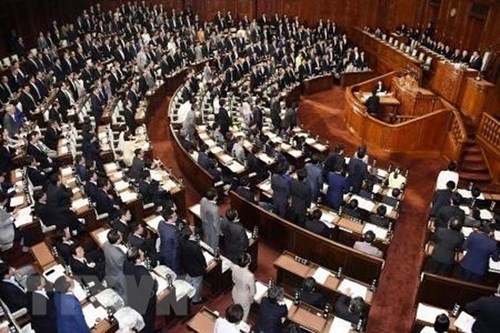The completion means four more countries need to finish their domestic processes for the pact to take effect.
    |
 |
|
At a session of the National Diet of Japan |
Japan’s economy will likely get an 8 trillion yen (72.28 billion USD) boost from the deal even when agricultural and sea products may experience a loss of up to 150 billion yen (1.3 billion USD), the government estimated.
The Diet has enacted legislation to provide support for Japanese livestock farmers exposed to foreign competition while extending intellectual property rights in line with the deal’s regulation.
Japanese Prime Minister Shinzo Abe will sign a free trade agreement with the European Union next week, showing Tokyo’s determination to promote free trade.
The original Trans-Pacific Partnership (TPP) was signed by 12 countries in February 2016 but US President Donald Trump pulled his country from the deal upon his inauguration in January 2017.
The remaining 11 countries, namely Australia, Brunei, Canada, Chile, Japan, Malaysia, Mexico, New Zealand, Peru, Singapore and Vietnam, signed the pact and renamed it the CPTPP in March 2018 in Chile.
The pact is expected to boost economic growth, create more jobs, reduce poverty and improve the quality of life for people in member countries.
The deal will create one of the world’s largest free trade blocs with a combined market of 499 million people and GDP of around 10.1 trillion USD, accounting for 13.5 percent of the global GDP.
Source: VNA